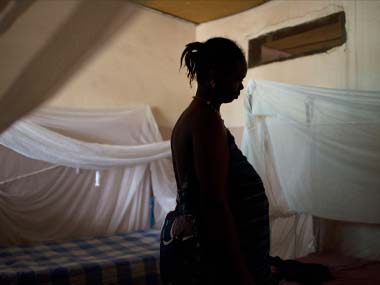The cascading impact of silence around sex and sexuality is the reluctance towards addressing the sexual and reproductive health (SRH) issues. While SRH is used interchangeably with family planning, it is much more than just family planning and caters to address the diverse need of different population groups including adolescents, unmarried youth and people with diverse sexual identity and orientation. The concept of SRH was first put forward at the International Conference on Population and Development (ICPD) in 1994. The range of services under SRH included family planning; maternal and newborn health care; prevention, diagnosis and treatment of sexually transmitted infections (STIs), including HIV; adolescent SRH; cervical cancer screening; infertility prevention and management. These services aim at preventing poor SRH, such as complications of pregnancy and childbirth, unintended pregnancies, unsafe abortions, complications caused by STIs, sexual violence and women dying from avoidable cancer.[caption id=“attachment_3831295” align=“alignleft” width=“380”]  Representational image. Reuters[/caption] Prior to the ICPD, which is a cornerstone for population programmes across the world, the key focus of reproductive health programmes was around family planning, fertility control and safe motherhood. As a country, we have made several strides in steering the national family planning programme from a “population control” to “population stabilization” approach. The national programme likes RMNCH+A and RKSS recognises the need for integrated service delivery and information across life stages especially among adolescents. Similarly, progressive policy and legal changes related to Section 377 decriminalising same-sex relationships, maternity benefits and recognition of the third gender have opened up avenues to introduce Sexual and Reproductive Rights discussions in the India policy discourses. However, within our SRH programmes, there continues to be a disproportionate focus on women tubectomy, primarily due its success and traditional acceptance about a woman being the bearer of family planning burden, thanks to several decades of long-term contraceptive behaviour changes programmes. One of the classic examples is that most SRH programmes in India are implemented through the Department of Family Planning instead of a much-needed Department of Sexual and Reproductive Health, in many ways further creating a dichotomy between the sexual and reproductive health and rights. The resurfacing of the “population control” discussions around the fringes of the upcoming election is another worrying trend that may compromise the progress made so far. SRHR is not limited to women and girls but they are at the forefront of disproportionate consequences of lack of information and services. Every year, women and girls die of preventable maternal, neonatal conditions and sexually transmitted infections often caused by sexual abuse, unwanted pregnancies and unsafe abortions. Thus, creating several grassroots and international movements to demand gender justice and to recognise SRHR as a human right. As of now we lack an accepted definition of Sexual Rights, but United Nations Office Human Rights Office recognises that “women’s sexual and reproductive health is related to multiple human rights, including the right to life, the right to be free from torture, the right to health, the right to privacy, the right to education, and the prohibition of discrimination. The Committee on Economic, Social and Cultural Rights and the Committee on the Elimination of Discrimination against Women (CEDAW) have both clearly indicated that women’s right to health includes their sexual and reproductive health.” The commitment to CEDAW and other development frameworks such as SDGs, reflects the obligations of the state to respect, protect and fulfil rights related to women’s sexual and reproductive health. More importantly also implying the need to reassess the population health programmes in India with a human rights perspective and to establish a stronger human rights mechanism to address the neglect of SRHR for individuals. In 2018, the Guttmacher- Lancet Commission on Sexual and Reproductive Health and Rights has introduced an expanded and evidenced-based comprehensive definition of sexual and reproductive health and rights (SRHR), and recommends an all-inclusive package of essential SRH services and information that should be available to everyone. These include comprehensive sexuality education, the prevention and treatment of STIs and cancers of reproductive systems, counselling and care related to sexuality, sexual identity and sexual relationships, and safe abortion services. We have made tremendous progress in the field of basket of choices, inclusive programmes and community-centred initiatives, but there is still a significant need to address inequity, accessibility for the disadvantaged groups and increased investments for a good quality and affordable health care services grounded in human rights. The author is Senior technical advisor - Advocacy and Accountability at International Planned Parenthood Federation - South Asia Regional Office.
Sexual and Reproductive Health and Rights is not limited to women and girls but they are at the forefront of disproportionate consequences of lack of information and services.
Advertisement
End of Article


)

)
)
)
)
)
)
)
)



